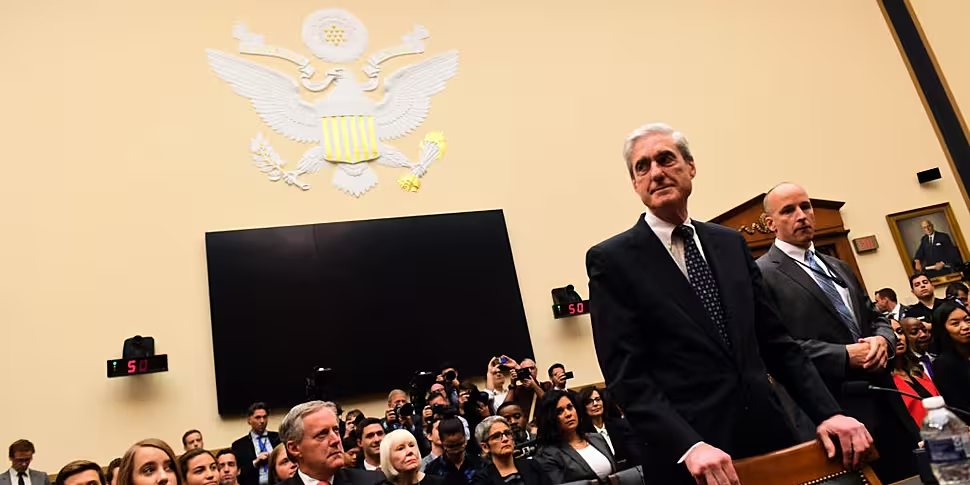The US special counsel says his report does not exonerate the US president when it comes to potential obstruction of justice.
Mr Mueller is appearing before two House committees to testify on his investigation into Russian interference in the 2016 election.
His report - published in redacted form in April - highlights 'ten episodes' relating to Donald Trump and potential obstruction of justice - although it makes no 'prosecutorial judgement' on the issue.
It "does not conclude that the President committed a crime", but also does not exonerate him.
The report outlined efforts by Russia to interfere in the US election through social media misinformation campaigns, as well as hacking efforts.
It found the Russian efforts "favoured" Donald Trump during the campaign - although did not find any members of his campaign 'colluded' with the Russians.
In an opening statement before the House judiciary committee, Mr Mueller stressed he would stick to the text of his report in his testimony.
He explained: "I do not intend to summarise or describe the results of our work in a different way in the course of my testimony today.
"The report is my testimony, and I will stay within that text."
The Democratic chair of the committee, Jerry Nadler, was the first person to question Mr Mueller.
He asked the former special counsel to describe "in plain terms" a finding that there were "multiple acts by the President that were capable of exerting undue influence over law enforcement investigations".
Mr Mueller responded: "The finding indicates the President was not exculpated for the acts that he allegedly committed."
In case it wasn’t clear from context, “exculpated” means “to clear from alleged fault or guilt”. https://t.co/YTjbnHfPtK Mueller said he did not exculpate the President.
— GovTrack.🇺🇸 (@govtrack) July 24, 2019
The former FBI director also stressed that the report did not support President Trump's claims that the report totally exonerated him.
Quizzed about whether his office was unable to conclude that the president did not commit obstruction of justice, Mr Mueller said: "At the outset, we determined that when it came to the President's culpability we needed to go forward only after taking into account the [Office of Legal Counsel] opinion that the sitting president cannot be indicted."
Returning to that point, Republican Ken Buck asked Mr Mueller whether he believed a president could be charged with a crime after he left office.
Mr Mueller simply responded: "Yes".
Rep. Ken Buck: "Could you charge the president with a crime after he left office?"
Robert Mueller: "Yes"
Buck: "You could charge the President of the United States with obstruction of justice after he left office?"
Mueller: "Yes" https://t.co/q26xNBe3pb #MuellerHearings pic.twitter.com/ky9Nnqv8Hz— This Week (@ThisWeekABC) July 24, 2019
Democratic and Republican members of the committee will have alternating five-minute opportunities to question Mr Mueller.
Later, he'll appear before the permanent select committee on intelligence to face further questions.









